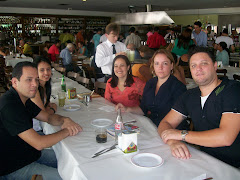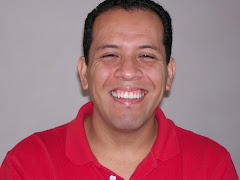
Definindo o nivel do aluno num curso de Ingles (para criar uma boa aula num curso em Portugues, ver o post A Estrutura de uma Aula
Esse topico é uma resposta a uma jovem professora, vou postar aqui porque pode ser útil para mais alguem. E outros podem contribuir com sua experiencia.
A melhor resposta a essa pergunta eu obtive de voce mesma; "um professor é uma aluno mais adiantado, que partilha seu saber e ajuda o aluno a estudar!" :)
Antes de mais nada é importante definir o nível do aluno, essa divisao de materia é variavel e dependera do metodo escolhido. Aqui vai uma sugestao, mas pessoalmente prefiro os métodos que me permitem apresentar algumas nocoes de presente, em seguida passado e em seguida futuro, para o aluno adquirir mais liberdade com o idioma logo de inicio. Mas existem controversias.
Por exemplo, o fato do To Have só aparecer no Lower Intermediate nao quer dizer que nao tenha entrado antes, mas que vai ser estudado ou de uma maneira mais aprofundada mais tarde ou em outro contexto.
Essa divisao é do ABA English
BEGINNERS
Para o aluno que esta comecando do zero (O aluno vai adquirir em média 500 palavras nesse nível)
- Personal pronouns
- The verb To be in the simple present
- Contractions with the verb to be
- Articles and nouns
- Greeting
- The alphabet and the spelling
- Numbers
- Telling the time
- Days, months, ordinal numbers and dates
- How to speak on the phone
- Question tags with the verb to be
-Verbs
Simple Present
- The auxiliary verb to do
- Adverbs of frequency - always, sometimes, ...
- What, which, ...
How, what ... Like
Who, where
- In, at, on as prepositions of place
- Why, when
In, at, on as time prepositions
Question tags with the verb to do
LOWER INTERMEDIATE
Para alunos que já possuem algum conhecimento de Ingles tambem chamados de falsos principiantes (devera adquirir uma média de 600 palavras nesse nivel)
- The verb to have in the affirmative
- To have in questions and negative sentences
- Some , any
- There is - There are
- Adverbs of quantity - much, many, ...
- Possessive adjectives - my, your, ...
- Demonstrative pronouns and adjectives - this, that, ...
- The possessive form
- Possessive pronouns - mine, yours, ...
- Object pronouns - me, you, ...
- Qualifying adjectives -
big, good, high, ...
- How to express age
- Present Continuous
- Present Continuous and Simple Present
- Future with Simple Present and Present Continuous
- Future with will
- Shall for offer and suggestions
- Request with will and would
- Future with going to
INTERMEDIATE
Para quem tem um nível médio de Ingles (deve possuir um vocabulario de 600 palavras aproximadamente ao fim desse nível)
- Modal verbs
Can
Can: questions, requests and permission
- Polite requests - Could you ...?, May I ...?
Questions with modal verbs
- Must and to have to
- Questions with must and to have to
- Negative sentences must, should, ...
- to be in the Simple Past in the negative
- Conditional sentences with the present
- Conditional sentences with the future
- Conditional sentences with will - can, must, may, might
- if - unless, in case, ...
- to be in the Simple Past in the affirmative
- to be in the Simple Past in questions and answers
- there is - there are in the simple past
- Regular verbs
- Regular verbs in Simple Past
- Irregular verbs
- Irregular verbs in the Simple Past
- Simple Past in questions and negative sentences
- can in Simple Past
- to have to in the Simple Past
- Question tags in the simple past
UPPER INTEMEDIATE
Para alunos com alto nível de conhecimento de Ingles (neste nível o aluno tera palavras)
- The verbs to say and to tell
- Imperative
- Adverbs of quantity - very, so, too, ...
- Adverbs of quantity - too much, too many, ...
- Prepositions of place - between, under, ...
- Prepositions of movement - to, from, ...
- Verbs of the senses
- Comparative adjectives
- Other comparatives
- Superlative adjectives
- Adverbs of manner - quickly, quietly, ...
- Other adverbs: time, place, ...
- Present Perfect
- Since, for, just
Not yet, still not, never
Yet?, already, still
Ever?, how long?
- Simple Past versus Present Perfect
- Present Perfect Continuous
- Past Perfect
- Past Perfect Continuous
ADVANCED
Para alunos com um nível muito alto de Ingles ( Com a aquisicao de em média mais 600 palavras, acumulando um total de 2900 palavras ou mais dependendo de seus habitos de leitura)
- Compounds words with some
- Compounds words with any
- Compounds words with no
- Compounds words with very
- The pronoun one
- The adverb else
- Expressions of frequency
- Impersonal sentences with it
- I also like it, me too, so do I
- I don't like it either, neither do I
- Why don't ...?
- Past Continuous
- Gerund
- Gerund after prepositions
- Gerund after verbs
- Gerund after adjective + preposition
- Gerund + to do
- To do versus to make
- Gerund + to go
- To go + preposition - go on, go for,
- To get
- To get + preposition - get to, get in, ...
































































